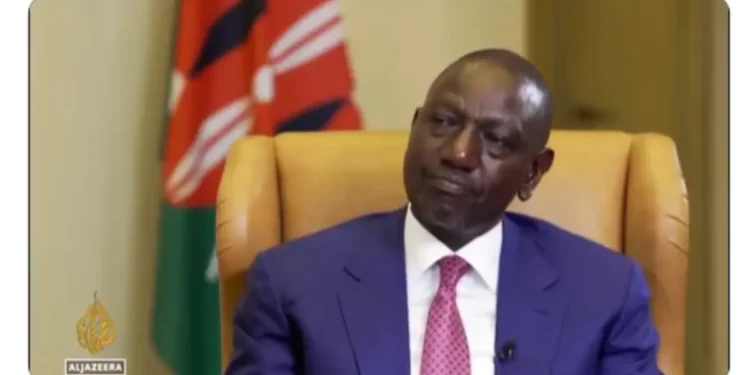Ruto’s 2025 Tanzania elections comment has ignited a diplomatic tightrope walk as Kenyan President William Ruto subtly critiqued neighbouring Tanzania’s landslide presidential result during a candid Al Jazeera interview on November 9.
Addressing the 97.66 per cent victory claimed by incumbent Samia Suluhu Hassan in the October 29 polls, Ruto remarked that securing 96 per cent of votes would be “impossible in a democracy like Kenya,” a veiled nod to the controversy swirling around reports of opposition curbs, electoral irregularities, and post-vote violence.
The statement, delivered with measured poise from State House, contrasts sharply with Ruto’s effusive congratulations to Hassan just six days earlier, following her swearing-in for a second term, prompting Kenyan social media users to decry perceived hypocrisy and draw parallels to the annulled 2017 Kenyan elections.
Ruto’s interview, part of Al Jazeera’s “Talk to Al Jazeera” series, explored broader East African governance challenges, but the Tanzania tangent dominated headlines.
Ruto elaborated, avoiding direct accusations and emphasising the importance of multiparty vibrancy as a regional model.
Hassan’s Chama Cha Mapinduzi (CCM) party, in power since independence, secured not only the presidency but also swept parliamentary and local races, an outcome decried by opposition Chadema as rigged amid voter suppression and internet blackouts.
Independent monitors, including the African Union Election Observation Mission, flagged “significant restrictions” on freedoms, with at least 45 protest-related deaths reported by Human Rights Watch since polling day.
The timing of Ruto’s pivot couldn’t be more poignant. His message hailed Hassan’s win as a “testament to the Tanzanian people’s choice”, extending olive branches for bilateral ties in trade and security.
One X post quipped, “Ruto congratulates a 98% win, then calls it impossible? Peak diplomacy or double speak?” Another drew stark contrasts to Kenya’s 2017 Supreme Court annulment of Uhuru Kenyatta’s 54 per cent haul over similar fraud claims, asking, “If 54% was bad, what’s 98%? Ruto’s selective amnesia?” Foreign policy watchers see layers in Ruto’s rhetoric.
The Kenya-Tanzania border, a bustling artery for EAC trade worth Sh2 trillion annually, demands harmony, yet Ruto’s nudge aligns with Western allies pressing for electoral reforms.
U.S. Ambassador Meg Whitman echoed similar sentiments in a November 7 tweet, urging “credible processes” across the region.
Chadema, however, seized the moment, with Lissu saying from hiding, “Even Ruto sees the farce. Tanzania deserves better than stolen ballots.” Exile voices like influencer Mange Kimambi amplified the clip from her U.S. perch, her feed surging with reposts.
Opposition heavyweights pounced: “Ruto preaches democracy abroad but muzzles it at home. Glass houses, Mr President.”
As November 10 unfolds, Ruto’s 2025 Tanzania elections comment lingers as a diplomatic fork: a gentle prod at authoritarian drifts or a calculated flex of moral high ground?















